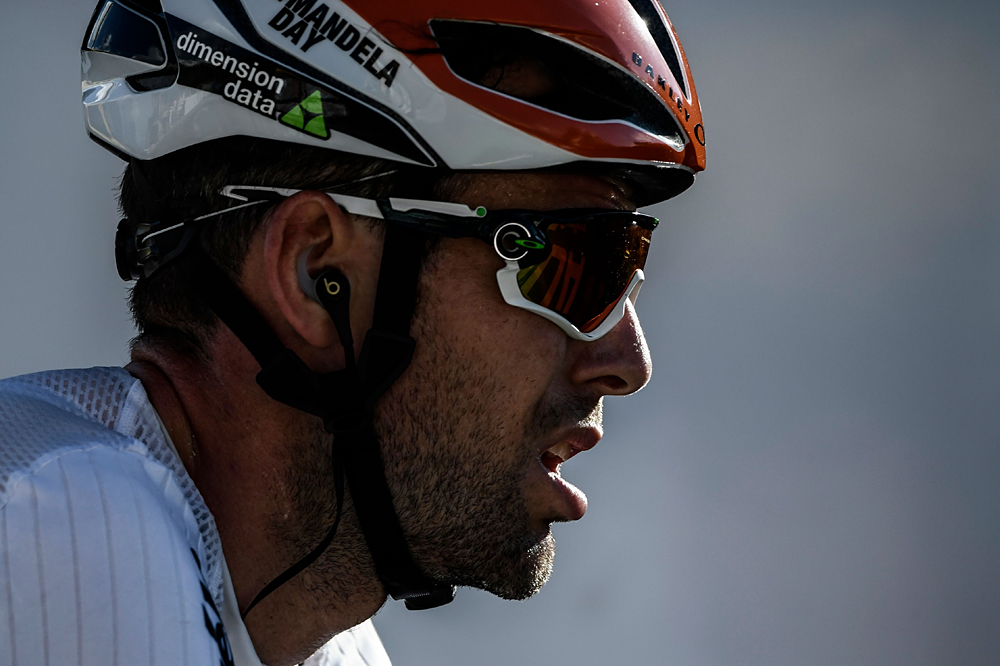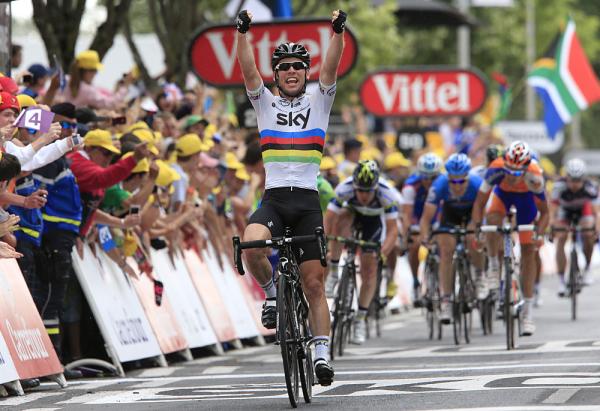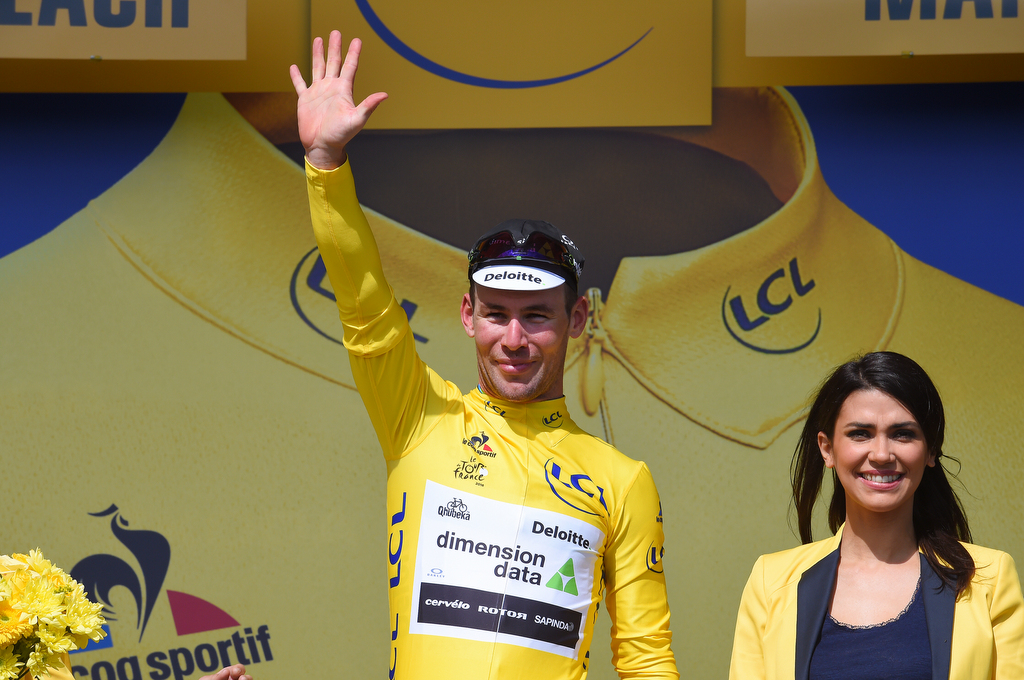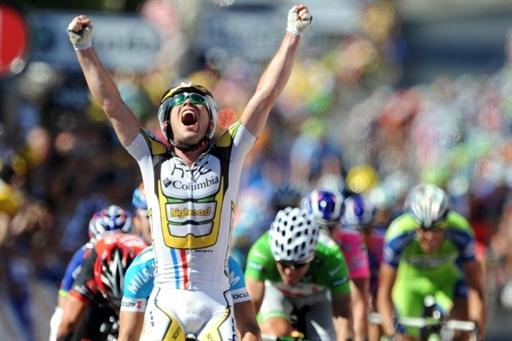Snubbed for Tour de France: Is this the end for Mark Cavendish?
Only time will tell if Dimension Data have made the right decision





In the end - and at the 11th hour - Team Dimension Data decided to ignore reputation and leave Mark Cavendish out of this year’s Tour de France. Their talisman, a rider who has amassed 30 Tour stage wins in a long and glittering career, will sit on the sofa this July for the first time in over a decade. Only time will tell if team owner Doug Ryder has made the right decision.
Of little dispute is that, despite aging legs, a lack of form, and unpredictability in terms of surviving the mountains, Cavendish remains a box office name.
His participation even at the Grand Départ would have generated headlines, not just in the United Kingdom but across the cycling world. The Brussels fanfare and the comparisons to Eddy Merckx’s stage win record would have seen to that.
Instead, Ryder has seemingly decided to shun a freebie of press coverage and base his decision over Cavendish on purely racing aspects - facts, rather than impressions, as football manager Rafa Benitez might call them. Ryder certainly has evidence to back his call. He will point to a dossier of evidence that pinpoints a rider’s decline and lack of results. However, whatever metrics Ryder has used to justify his decision have not been implemented across the rest of the team.
Last year, at the age of 33, Cavendish was afforded a stay of execution with a one-year deal that was only hammered out after Ryder had spent most of the team’s budget on the 2018 Amstel Gold Race podium. The team certainly needed reinvigorating and, with a 12-month extended tenure, Cavendish was given the chance to prove that his 2017 and 2018 health problems were behind him.
However, despite declaring he was over his bout of Epstein Barr Virus at May’s Tour of California, the results never came. He failed to contest a single sprint in the Golden State before quitting on the final day. He then suffered through the Tour of Slovenia without ever breaking into the top 50. The race had plenty of challenging climbs, and to some within Dimension Data, the sprinter looked to be on track. But cycling is very much a market built on results, and recent results are the most sought-after currency.
Cavendish has not won a race since the start of 2018 and the fact that his teammate Giacomo Nizzolo – a rider Cavendish used to swat aside in bunch sprints – won a stage in Slovenia probably only compounded matters and sealed Cavendish’s fate.
Get The Leadout Newsletter
The latest race content, interviews, features, reviews and expert buying guides, direct to your inbox!
However, the counter-argument for Cavendish’s inclusion is strong, too.
Dimension Data are hardly brimming with confidence and conquests. Edvald Boasson Hagen has been a ray of light in a season of shadows, and while Nizzolo has chipped in with two wins, he is not a rider who will trouble the likes of Dylan Groenewegen, Caleb Ewan and Elia Viviani on those wide French boulevard sprints.
The rest of the team have varied between inconsistent at best and shambolic at worst, with their Classics campaign an embarrassment for a WorldTour squad of any stature. Valgren has looked a different rider since leaving Astana, while even the dependable Roman Kreuziger appears to be slowing.
That Cavendish wasn’t even deemed worthy of a team with no GC aspirations is a damning insight into the relationship he has with Ryder. The fact that Steve Cummings, who hasn’t finished a stage race since March, even called his inclusion a ‘surprise’, said it all. The team’s inability to handle the situation saw them choose to not even mention Cavendish in their Tour de France team announcement. He deserved better.
Where Cavendish goes from here is unclear, and there are still a number of unanswered questions surrounding his form and future. If he is healthy then why can’t the speed that once flowed so easily be showcased? Are his hurdles physical or mental, or has father time simply caught up with a rider now beyond his best years?
There was once a point when only fools would write off Cavendish. One can go back to his junior years to find the doubters, but even at the Tour in 2010, when Cavendish took until stage 5 to win a sprint, the knives were out and the critics seethed with vitriol with each missed opportunity. He would eventually ride into Paris with five stages to his name.
There have been countless other comebacks of valiance and valour. His stage wins on the Champ Elysées in 2009 and 2012, the tears in Montargis, winning virtually alone in Brive-la-Gaillarde in 2012, and so many other mesmerising Tour sprints in which he made winning look easy. Perhaps the greatest achievement came in 2016 - in Dimension Data colours no less – when, after two barren years, he once again proved that, despite a new generation of sprinters on the scene, he could still eclipse them all.
He really was the sprinter of a generation and a rider who changed the face of bunch sprinting. For all his flaws, and all those doubts, bringing Cavendish to the Tour was probably a risk worth taking for Dimension Data and Ryder.
Daniel Benson was the Editor in Chief at Cyclingnews.com between 2008 and 2022. Based in the UK, he joined the Cyclingnews team in 2008 as the site's first UK-based Managing Editor. In that time, he reported on over a dozen editions of the Tour de France, several World Championships, the Tour Down Under, Spring Classics, and the London 2012 Olympic Games. With the help of the excellent editorial team, he ran the coverage on Cyclingnews and has interviewed leading figures in the sport including UCI Presidents and Tour de France winners.
